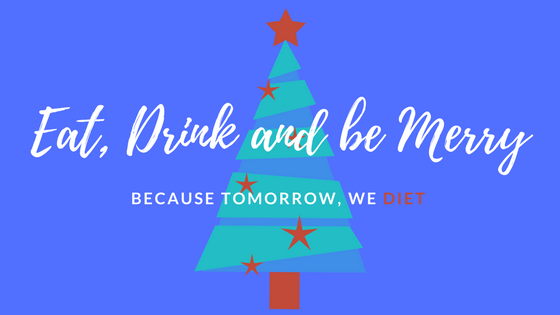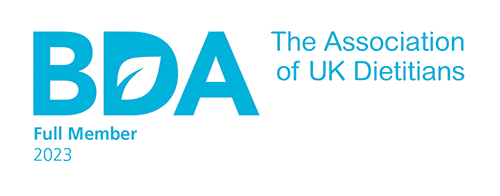The Last Supper
The Last Supper….at Christmas?
Some reports estimate that the food consumed on Christmas Day contains an average of 7,000 calories. To put this into perspective, the ‘average’ adult needs 2,000 calories a day. These figures are not precise or accurate for an individual (we’re working with estimates and averages here), but aside from that, I have 2 further issues with this statistic.
- Firstly, who’s counting?
- Secondly, most people will eat more than their normal quantities over the Christmas holiday period.
Food has a long history of use in celebrations, and Christmas is no different. The real question is “Is it a problem?”
For some, no, some (over)indulgence will not be a problem – normal eating resumes quickly with no lasting repercussions.
Having said that though, it would take a concerted effort to consume around 7,000 calories and not feel some ill effects. So if this estimate holds any truth, I suspect people are eating to uncomfortable bursting point. But why?
There are a number of possibilities.
Enjoyment
You may have no concerns about your health or weight, no food issues, confidence in your ability to manage food on the whole and so enjoy occasional over-eating.
You might like the post meal dozy slump, the food coma, as you associate this with festivity, holidays, indulgence, comfort and a complete switch off from ‘normal’ life.
You go back to normal eating naturally once Christmas is over.
Entitlement
Christmas is one of the few times of the year when eating much too much has almost become expected.
If you struggle with food control, and maybe don’t usually allow yourself to overeat in company, Christmas presents an occasion to overeat with impunity. After all, it has become completely socially acceptable.
There may even be an element of competitive eating – a ‘sport’ in which competitors compete against each other to consume large quantities of food in a short period of time. You may even take pride in your ability to eat so much!
You are of course entitled to eat what you want – just don’t lose sight of the fact that eating isn’t supposed to hurt!
You may be engaging in Last Supper eating
Last Supper eating represents a possibly familiar pattern of purposely overeating before the self-imposed New Year diet.
It is a conscious decision to over eat, drink and be merry, because come the New Year, the diet starts.
You feel duty bound to eat all the ‘rubbish’ out of the house so it’s not there to tempt you when your diet starts. You are probably not thinking about whether you actually want or are enjoying the food you are eating. You are only focused on eating it now, before you no longer allow yourself to have it.
‘Last supper’ eating is common among people who diet frequently. It’s not unique to the Christmas period and can happen at any time of the year – think about how you might eat in the weekend before the start of the Monday diet!
Since losing weight is consistently on top of New Year resolutions lists, it is probable that ‘last supper’ Christmas feasting, before the pain of diet deprivation, is equally common.
It is completely appropriate to enjoy food and festivities. However, if you are bothered by your weight, the problem occurs when the boundary between appropriate food enjoyment, and damaging overeating, gets crossed.
Last Supper eating is supported by the notion that certain foods are ‘allowed’ while others are ‘not allowed’. So, for example, if chocolate is ‘not allowed’ when you start dieting, Last Supper thinking almost encourages chocolate intake before it’s off limits.
So, in effect, the decision to start a New Year diet can have a direct impact on your eating decisions over the Christmas period.
It is therefore plausible that if you were able to move away from the notion of foods being ‘allowed’ or ‘not allowed’ then you would have no particular incentive to overeat them in the first place.
This requires a major shift away from dieting mentalities (on a diet, off a diet, on a diet…..), a re-focus on the clichéd ‘relationship’ with food, and finding a way of eating that works for you long-term versus the often short-lived dieting restrictions.
Don’t wait until the New Year (or some random Monday) to start improving how you use food. This does not mean cutting out your favourite foods. But it does mean eating those foods in a managed way, not in a ‘last supper’ way.
Eating something because you tell yourself you’ll not be allowed it come January is wrong, wrong, wrong. Wrong.
So what can you do?
In no particular order:
- Dump the dieting mentality – fluctuating between weight loss on a diet with weight gain when off your diet is a highway to nowhere, and a reflection of how ill-fitted your diet was to addressing your food problems. Don’t repeat old mistakes.
- Ditch diet rules, but respect the boundaries – that is, eat what you know you want and will enjoy, but stop eating when satisfied or full.
- Respect your food – you’re lucky to have it in abundance. Take time to enjoy it, instead of indulging to the point of discomfort.
- Respect your body – it has more wisdom than a box of mince pies. Listen to it – if it tells you you’re full and unlikely to fully enjoy more food right now, stop eating. The food will still be there later.
- Challenge the thoughts encouraging you to eat. Stop labelling food as ‘good’, ‘bad’, ‘allowed’ or ‘not allowed’. Labels like this influence your thoughts, which will affect your food decisions, but usually in a negative way.
For example:
Thought: I’ll not allow myself to eat (insert food) when I start my diet.
Behaviour: Overeat while you have the chance
Consider the following thought shift:
Thought: I can eat (insert food) at any time of the year. I’ll have some now, but I don’t need to sicken myself.
Behaviour: Include the foods you enjoy, on your terms, while respecting your fullness and satisfaction levels.
Change the thought, change the behaviour.
So eat, drink and be merry. Enjoy your food, but no need to overdo it today.
Because tomorrow, you’ll get a chance to eat all over again.
Merry Christmas and a Happy New Year
If you wish to further explore the topics covered in Diet Dilemmas blog posts, see Diet Dilemmas book.





